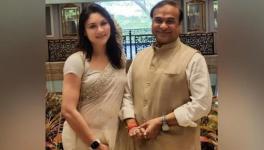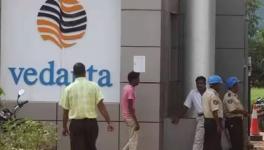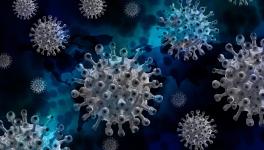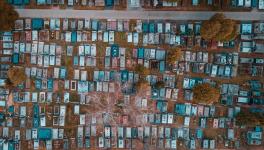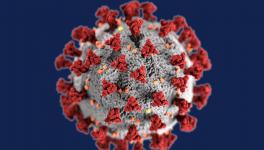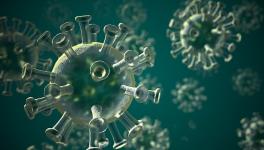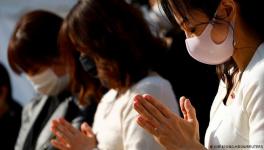The Seven Things-To-Do PM Modi Did Not Address
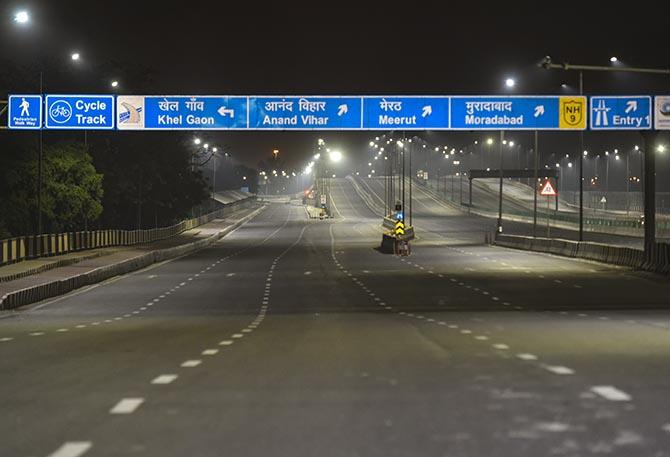
Representational image. | Image Courtesy: Rediff.com
The Prime Minister’s address to the nation on April 14, 2020, came as a major disappointment and a painful blow to the basic needs, indeed perhaps even survival, of a majority of the Indian people, especially the poor and otherwise vulnerable sections of the population.
The Government’s decision to extend the 21-day lockdown by an additional 18 days – of which the first week till April 20 would be under even stricter enforcement of restrictions – was accompanied by no epidemiological evidence or data as a basis, only a mistaken notion that a lockdown is the only or primary weapon, a brahmastra or laxman rekha, if one follows the PM’s favoured style of mythological references. The way the lockdown was conceived and has been implemented so far, with the announced extension, there seems to be a uni-dimensional approach of treating the COVID-19 pandemic as a law-and-order issue and relying mainly on the police to enforce lockdown restrictions, who often act as if the people, and not the virus, is the enemy. This is direct contrast with the PM’s claim that his government has adopted a “holistic and integrated approach.”
The claims made in the PM’s speech that the “country has greatly benefitted from the lockdown,” even if it “looks costly” from an “economic only point of view,” are contrary to facts, and also betray an outlook from the viewpoint of the well-off. Migrant workers and workers in the unorganised sector continue to suffer untold hardships including lack of food or dry rations, overcrowded accommodation with no possibility of physical distancing thus exposing them to infection, and with no opportunities to earn an income. An integrated approach would not have permitted this to happen.
Getting one lakh beds and many hospitals ready has been claimed as a major accomplishment of the Government. But, these beds and hospitals are pre-existing facilities merely earmarked for COVID-19 patients, thankfully now unused, but unfortunately unavailable for patients with other serious ailments who have been denied hospital facilities and even OPD services, except in extreme cases. A total absence of transportation also denies people access to these essential health facilities.
PM Modi also did not mention measures his government has taken to overcome the acute shortages of N95 masks, coveralls and PPEs, putting at serious risk even the “Corona warriors,” who the people were exhorted to hail with claps, vessel-banging, diyas and candles, many having already lost their lives. Nor did the PM address the abnormally low levels of testing in India, or the gross inadequacy of testing kits.
Regrettably, when the nation needs to stand as one, something the PM repeatedly stressed on, he did not condemn the growing communalisation of the pandemic and the demonisation of the entire Muslim community.
In his speech, the PM called upon the people to do seven things to help the fight against the COVID-19 pandemic, including taking care of the elderly, boosting immunity through unproven Ayurvedic treatments, using the highly intrusive Aarogya Setu App, taking care of the poor especially with food, being compassionate towards employees and not depriving them of livelihoods and paying utmost respect to our Corona Warriors especially doctors, nurses, sanitation workers and the police. As civic minded organisations and citizens, we are confident that the people will rise to most of the PM’s expectations.
In this time of crisis, we urge the Prime Minister and his Government to urgently do the following seven things:
1) Take on the full burden of providing adequate food/dry rations, proper and hygienic shelter enabling physical distancing, and financial support in lieu of the wages they would otherwise have earned, and not leave so much of this task to voluntary efforts.
2) Ensure speedy acquisition and distribution of quality masks, coveralls, PPEs especially from domestic manufacturers, for protection of doctors, nurses, sanitation and other “Corona Warriors”; also open up minimum OPD and other health facilities to meet peoples needs.
3) Ensure acquisition of sufficient RT-PCR and anti-body “rapid” test kits, again especially from domestic manufacturers and quickly scale-up testing to required levels.
4) Facilitate agricultural operations, including fisheries, poultry, dairy and NTFP sectors, and related procurement, agro-processing, transportation, and marketing, all while maintaining physical distancing norms, along with rapid scaling-up of MNREGA works with suitably amended norms so as to assist farmers, farm and non-farm workers and the rural economy.
5) Enable unorganized sector workers and self-employed workers to resume work, extend legal protection from dismissal or lay-offs, and eviction by landlords, including through unemployment allowance and financial assistance to SMEs, landlords etc.
6) Ensure free inter-state and local transport of all essential goods, currently facing poor implementation of government exemptions and a disruption of supply chains including of medicines and PPEs; also facilitate provision of necessary transport facilities especially for the elderly, disabled and those with health issues and other special needs
7) Launch effective publicity campaigns accompanied with prosecutions as required against all forms of stigmatisation of COVID-19 patients, positive cases, quarantine cases, health workers etc and against all forms of communalisation of the pandemic.
Get the latest reports & analysis with people's perspective on Protests, movements & deep analytical videos, discussions of the current affairs in your Telegram app. Subscribe to NewsClick's Telegram channel & get Real-Time updates on stories, as they get published on our website.









